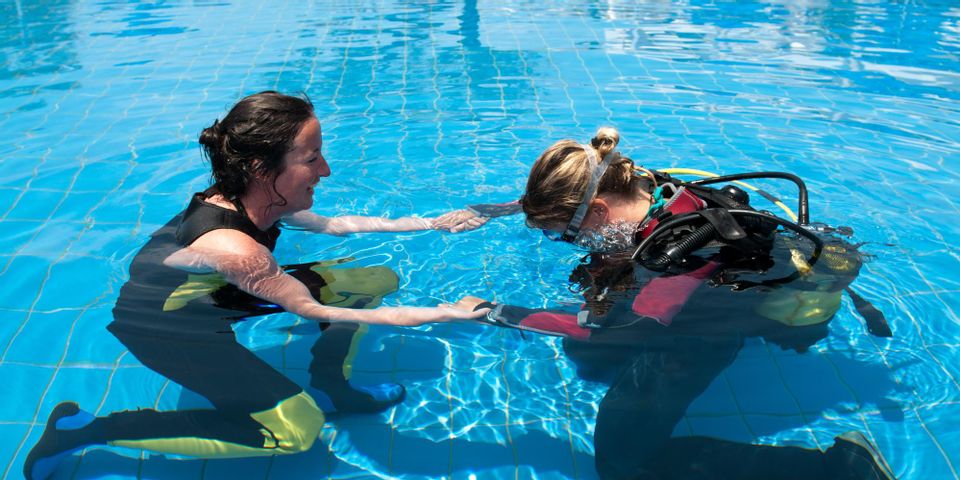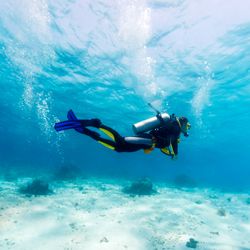
Thanks to self-contained underwater breathing apparatuses (SCUBA), divers can explore aquatic habitats for extended periods. Not only is this hobby a great form of exercise, but it provides stunning views. If you are interested in scuba diving, the following explains the process involved.
A Guide to Scuba Diving Certification
How do I learn to scuba dive?
Entry-level scuba certification—called Open Water certification— involves three main steps. First, you'll learn relevant scientific concepts, such as buoyancy and the Archimedes principle. Most of this is done online, followed by an exam.
Second, you'll be taught scuba skills in confined water like a pool. Over the course of a couple of days, you'll practice setting up your scuba gear, how to use the equipment, and emergency skills.
In the third stage, you will perform four dives at a lake or another open body of water. Here, you'll practice the skills you picked up during the confined water sessions and explore local ecosystems.
What are the requirements for learning to dive?
The minimum certification age in most states is ten years old. Students under 15 will receive a Junior Open Water certification. That means they need to dive with a Professional or parent until their 15th birthday They can upgrade to a regular Open Water Diver certification.
Before starting the course, you'll need to fill out a medical questionnaire to ensure you don't have any conditions that could interfere with diving. If you do, you'll need a doctor's permission before you can get in the water. The instructor will also ask you to do a swim test of 200 yards and a 10 minute float/tread water in the pool.
What gear do I need to scuba dive?
 To start scuba diving certification classes, you'll require a mask, snorkel, and fins. Most scuba courses will provide and teach you to use other essential gear such as a dive regulator, buoyancy control device, wetsuit, scuba tank, and weights. Once you've finished the course, you may choose to purchase this gear to take with you on independent dives. There is also specialized equipment for tropical and cold water diving.
To start scuba diving certification classes, you'll require a mask, snorkel, and fins. Most scuba courses will provide and teach you to use other essential gear such as a dive regulator, buoyancy control device, wetsuit, scuba tank, and weights. Once you've finished the course, you may choose to purchase this gear to take with you on independent dives. There is also specialized equipment for tropical and cold water diving.
How deep can I go?
Recreational scuba divers can go as deep as 130 feet. As a beginner, you shouldn’t go deeper than around 60 feet. Shallow water can be safer and you are a less risk for nitrogen issues and your air tank will possibly last longer.
If you're set on exploring the deeper depths there are many specialty courses you can take to learn more and dive safely.
Start your scuba diving adventure with the help of Phoenix Scuba in Maricopa County, AZ. For over 20 years, they've helped locals and vacationers get certified and start on their underwater explorations. The owners have more than 50 years of combined scuba experience and are passionate about sharing the wonders of the sea with others. They offer a range of scuba courses for all skill levels. Call (602) 374-3206 to learn more about their lessons. Visit their website to enroll.
About the Business
Have a question? Ask the experts!
Send your question

